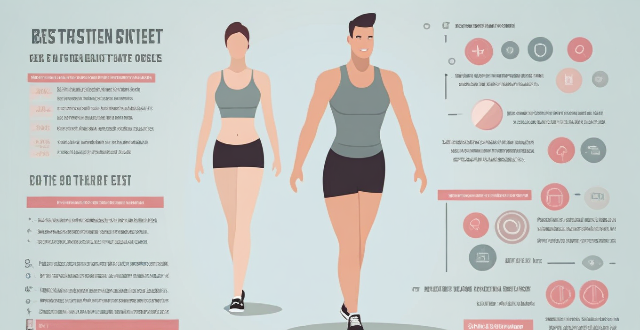The best type of fasting for weight loss depends on individual preferences and needs. Intermittent fasting is easy to follow and highly effective, but may be difficult to maintain long-term. Water fasting is also easy to follow but not recommended for long periods due to potential health risks. Calorie restriction is easy to follow and may improve health outcomes, but may not be suitable for everyone. It's important to consult with a healthcare professional before starting any type of fasting regimen.

What is the Best Type of Fasting for Weight Loss?
Fasting has become a popular way to lose weight, but which type of fasting is best for weight loss? In this article, we will explore different types of fasting and discuss their pros and cons.
1. Intermittent Fasting (IF)
Intermittent fasting involves alternating periods of eating with periods of fasting. There are several types of intermittent fasting, including:
- *16/8 Method*: Eat during an eight-hour window and fast for the other sixteen hours.
- *5:2 Method*: Eat normally five days a week and restrict your intake to 500-600 calories on two non-consecutive days.
- *Eat-Stop-Eat Method*: Fast for a full twenty-four hours every other day.
Pros:
- *Easy to follow*: Intermittent fasting is relatively easy to follow compared to other types of fasting.
- *Highly effective*: Studies have shown that intermittent fasting can help you lose weight and improve your health.
- *No food restrictions*: With intermittent fasting, you don't need to worry about counting calories or restricting your diet.
Cons:
- *Can be difficult to maintain*: Some people find it challenging to stick to intermittent fasting long-term.
- *May lead to nutrient deficiencies*: If you restrict your intake too much, you may end up lacking essential nutrients.
- *Not suitable for everyone*: People with medical conditions or who are pregnant should not try intermittent fasting without consulting their doctor first.
2. Water Fasting
Water fasting involves drinking only water for a certain period of time. This type of fasting is often used as a detoxification method or for spiritual purposes.
Pros:
- *Easy to follow*: Water fasting is relatively easy to follow compared to other types of fasting.
- *No food restrictions*: With water fasting, you don't need to worry about counting calories or restricting your diet.
- *May promote weight loss*: Drinking water can help you feel full and reduce your appetite, which may lead to weight loss.
Cons:
- *Not recommended for long periods*: Water fasting for more than a few days can be dangerous and may cause dehydration, electrolyte imbalances, and other health problems.
- *Not suitable for everyone*: People with medical conditions or who are pregnant should not try water fasting without consulting their doctor first.
3. Calorie Restriction (CR)
Calorie restriction involves reducing your daily calorie intake by a certain percentage while maintaining a healthy diet. This type of fasting is often used as a weight loss method.
Pros:
- *Easy to follow*: Calorie restriction is relatively easy to follow compared to other types of fasting.
- *May promote weight loss*: By reducing your calorie intake, you can create a calorie deficit, which may lead to weight loss.
- *May improve health outcomes*: Calorie restriction has been shown to improve various health outcomes, such as reducing the risk of heart disease and cancer.
Cons:
- *Not suitable for everyone*: People with medical conditions or who are pregnant should not try calorie restriction without consulting their doctor first. Additionally, some people may find it challenging to maintain a low calorie intake over the long term.